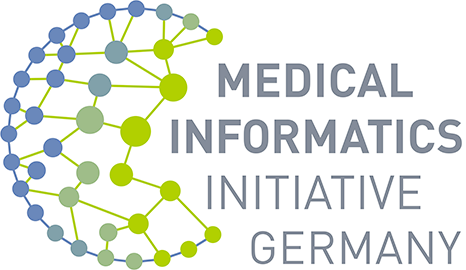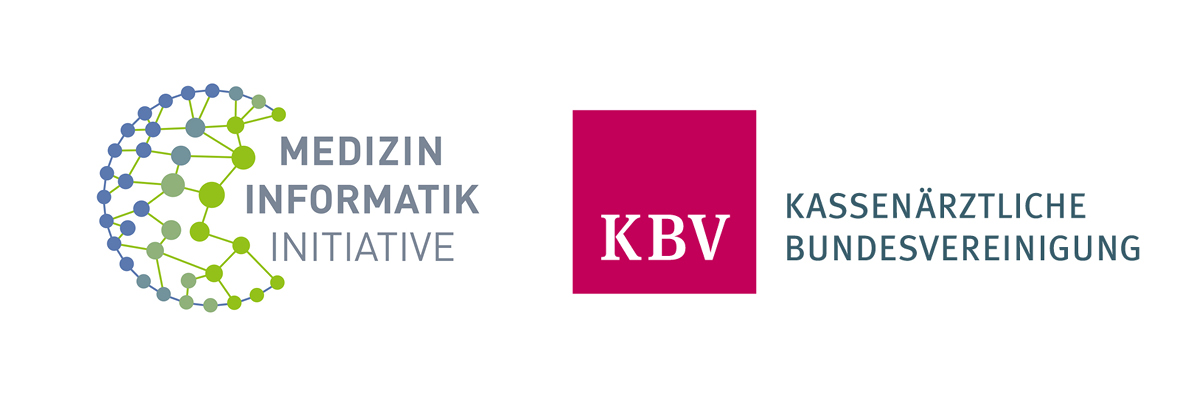
Berlin, 2. April 2020. Last week, the German National Association of Statutory Health Insurance Physicians (KBV) became an official partner of the Medical Informatics Initiative (MII) of the Federal Ministry of Education and Research (BMBF). The two organisations will collaborate closely to develop practical, research-compatible standards for structured content in electronic patient records (ePA), and they will work on the MII core data set for data integration centres at Germany’s university hospitals.
The Medical Informatics Initiative brings together all German university hospitals and other partners to establish the digital infrastructure needed to enable the use of data across all institutions and sites. Their joint mission is to improve medical research and patient care.
The role of KBV is to define ePA content in a way that ensures semantic and syntactical interoperability across all areas of the German healthcare sector. This entails the specification of medical information objects (MIOs), such as a patient’s vaccination record and a pre-school child’s medical examination record.
“Cooperation between KBV and MII is a key step towards enabling researchers to use the content of the electronic patient records,” states Sebastian C. Semler, Executive Director of TMF – Technology, Methods, and Infrastructure for Networked Medical Research. As an MII partner, KBV can employ SNOMED CT® as the medical terminology for encoding the MIOs. TMF will act as the National Release Center, and will manage the pilot license. This will be available to all MII participants and partners for the next three years. The license fee is to be borne by BMBF.
The draft version of the German Patient Data Protection Act foresees Germany acquiring membership of SNOMED CT® from 2021 onwards, enabling its use by all relevant stakeholders in the country. The introduction of SNOMED CT® as an internationally compatible set of terminology will, on the one hand, make it possible to annotate medical content in a way that can be understood across all systems and sectors, and on the other, make the captured content available in the long term for research and the development of AI-based medical support tools. The processing and translation of medical information into SNOMED CT® codes takes place in the background.
Close and productive collaboration between KBV and MII comprises both the development of the MIOs that will, in future, be part of electronic patient records, and MII’s core data set, to which all university medical sites in Germany have agreed and which harmonises the provision of data for research from routine patient care. For instance, the data models that underlie the electronic patient records will be aligned with MII’s core data set.
Bernhard Tenckhoff from KBV, the medical project lead for the development of the MIOs, gives his view of the partnership with MII: “Our task is to guarantee the usability of the content of electronic patient records for the good of society as a whole. As such, it is a priority to gear usability to real-world needs and to avoid overburdening users, while at the same time forming the foundation for future value added, based around research possibilities and AI developments. We are looking forward to deepening our constructive and creative partnership with MII.”
Press Contact:
Dr. Roland Stahl, Tel.: 030 4005-2201, RStahl@kbv.de
Sophie Haderer, Tel.: 030 22 00 24 7-32, presse@medizininformatik-initiative.de
German National Association of Statutory Health Insurance Physicians (KBV)
Stabsbereich Strategie, Politik und Kommunikation
Herbert-Lewin-Platz 2, 10623 Berlin
presse@kbv.de, www.kbv.de
Coordination Office of the Medical Informatics Initiative (MII)
c/o Geschäftsstelle TMF e.V.
Charlottenstraße 42, 10117 Berlin
Background
The aim of the Medical Informatics Initiative (MII) is to enhance research and patient care through innovative IT solutions. These will enable the sharing and use of data from healthcare and from clinical and biomedical research across multiple entities and sites. The German Federal Ministry of Education and Research (BMBF) is investing a total of 160 million euros in the initiative through 2021. Within the scope of four consortia – DIFUTURE, HiGHmed, MIRACUM and SMITH – all German university hospitals and medical centres at over 30 locations are cooperating with research institutions, businesses, health insurers and patient representatives. Their mission is to enable the use of research findings to the direct benefit of patients. At the same time, priority is given to robust data protection and security.
The Berlin-based coordination office, operated by TMF (Technology, Methods and Infrastructure for Networked Medical Research) with MFT (German Association of Medical Faculties) and VUD (German Association of Academic Medical Centers), is responsible for managing cooperation within MII at national level.

